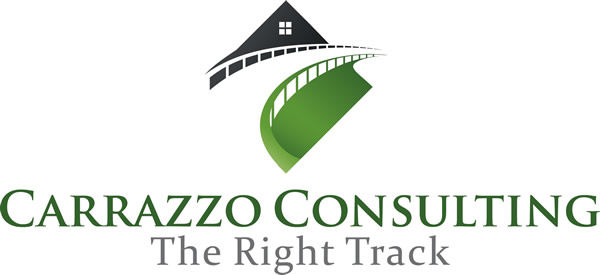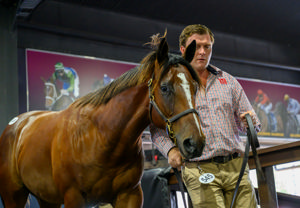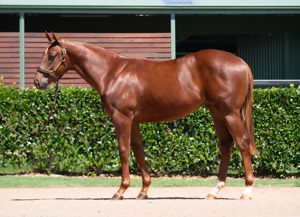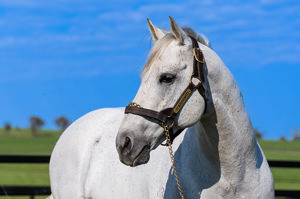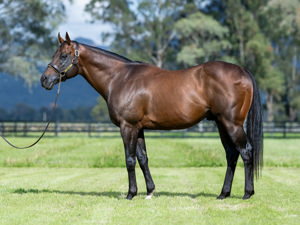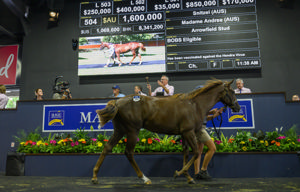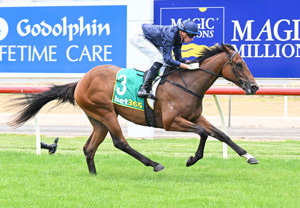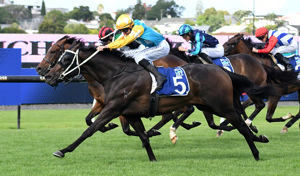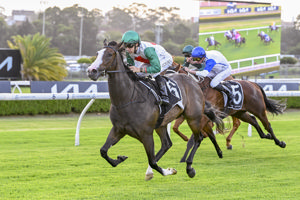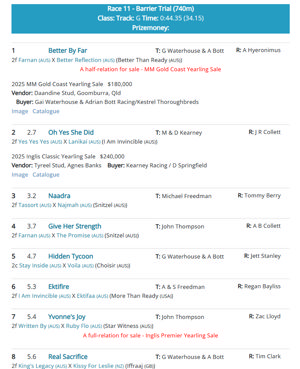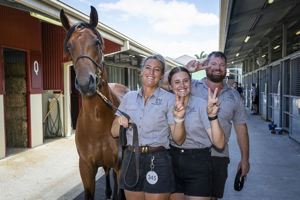With all the financial turbulence surrounding FY 2020, a tax bill, in this financial year especially, should not be anymore that it has to be - Carrazzo Consulting have prepared a comprehensive guide to tax planning for 2020.
Advertisement
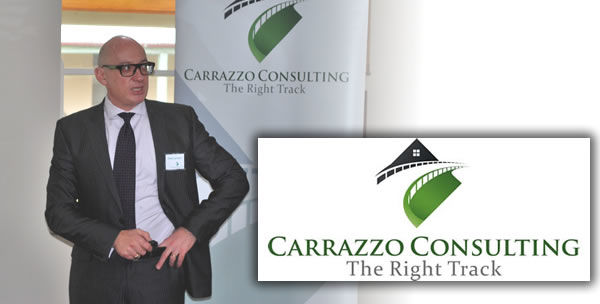
1. MAXIMISING DEPRECIATION DEDUCTIONS IN 2020
As a result of Covid 19, we now have in place the following options to get 100% deductions when we spend the following amounts on Plant and Equipment (whether it be new or used). The following amounts also relate to any improvements (e.g. capital improvements) we may make to assets we already held. Note the amounts we can deduct are all date sensitive, and the deduction we can receive depends on your business size:
- A 100% deduction for assets costing less than $30,000 (ex GST) is allowed for assets purchased between 1 July 2018 to 11 March 2020 for entities with a turnover of less than $50million
- A 100% deduction for assets costing less than $150,000 (ex GST ) is allowed for assets purchased from 12 March 2020 to 31 December 2020, for entities with a turnover of less than $500m
- A 100% deduction for assets costing less than $1,000 is allowed for assets purchased from 1 January 2021 for entities with turnover of less than $10m
However, please note that purchases of “cars” (where they are designed to carry a load of <1 tonne & fewer than 9 passengers) can only be 100% deducted up to a total of $57,581 (the ATO car limit) for the 2020 year. This limit is $59,136 for the 2021 year. Vehicles not defined as “cars”, e.g. farm utes, can be deducted 100% if acquired for less than $150,000.
The good news is that where you have a Small Business Entity (SBE) pool balance of less than $150k at 30/6/2020 can also deduct 100% of this at 30/06/2020.
Warning – these special write-off rules do not relate to purchase of breeding stock, e.g. mares, stallions, pin-hook weanlings etc.
Carrazzo strategy/recommendation:
1. If you are wanting to buy an asset that costs less than $150,000 (excl. GST), do so pre 30 June 2020 as it is 100% tax deductible.
2. BACKING BUSINESS INVESTMENT
The Government has introduced a special accelerated depreciation (from 12 March 2020 to 30/6/21) for all new asset purchases.
Under this regime, 57.5% of the cost of a new asset that is valued at $150k or more in value can be written off for SBEs with a turnover of <$10m in the first year of the asset’s purchase.
For businesses with a turnover > $10m but less than $500m, 50% of the cost of an asset that is valued at $150k or more in value can be written-off, plus the usual depreciation for the asset for the rest of the year.
Carrazzo strategy/recommendation:
1. If you are wanting to invest in new business assets that cost $150,000 (excl. GST) or more, consider when would be the best time to do this – now, or in 2021, or in both years.
3. FOR ASSET PURCHASES > $150k THAT ARE NOT NEW ASSETS
An SBE taxpayer (turnover < $10m) is entitled to claim the following deductions with respect to assets that cost them more than $150k and are not new. They can be allocated to the general pool:
A. A depreciation deduction of 15% of the cost of the asset in the year it is first ‘used’ or ‘installed ready for use’ by the taxpayer. It is important to note that the 15% claim is available provided that the asset is either ‘used’ or ‘installed ready for use’ by the SBE taxpayer on or before 30 June 2019. The fact that the particular asset may be ‘used’ or ‘installed ready for use’ towards the end of the 2019 income year does not affect an SBE taxpayer’s right to claim a deduction at the fully rate of 15% in that first year; and
B. A depreciation deduction of 30% applies once the asset forms part of the general pool balance. It is assumed that assets that are claimed as part of the general pool balance are ineligible for an immediate write-off (e.g., because the asset cost $30,000 or more where this threshold applies).
Carrazzo strategy/recommendations:
1. Consider whether you should purchase new or second-hand assets, if you are wanting to purchase assets $150,000 or more. The tax benefits you receive from the Backing Business Investment (see section 2) may mean that you are able to afford purchasing new assets.
4. ACCRUING BUSINESS EXPENSES IN THE 2020 YEAR
An SBE taxpayer is generally entitled to claim a deduction for all business expenses (e.g., wages) that have been incurred during the 2020 income year (regardless of whether these expenses have been paid). Some of the more common business deductions that can be claimed for amounts that are incurred in the 2020 income year and are not paid include:
A. Gross salary amounts that are payable to an employee for work performed up to 30 June 2020 that are not yet paid;
B. Directors’ fees that a company has definitively committed to paying as at 30 June 2020. The ATO will expect that a properly authorised resolution has been passed by shareholders by 30 June and this resolution quantifies the directors’ fees that are payable. Anyone considering accruing directors’ fees must consider Taxpayer Alert TA 2011/4 and tax ruling IT 2534;
C. Staff bonuses where the employer has definitively committed to payment of the bonus as at 30 June 2020;
D. Commission that is payable as at 30 June 2020 is deductible provided that the employer is ‘definitively committed’ to a quantifiable amount.
E. Accrued rent and interest expenses that are outstanding as at 30 June 2020 are deductible despite the fact that the amounts may remain unpaid as at 30 June 2020.
However, it is important to note that the above accruals are only deductible where the SBE taxpayer has not taken advantage of the transitional cash accounting rules that applied to STS taxpayers from 1 July 2005. Reference should be made to S.328-120 of the Income Tax (Transitional Provisions) Act 1997.
Carrazzo strategy/recommendation:
1. Take up any of the above expenses if they are relevant to your business. You will need proof that the expenses taken up are applicable to FY20.
5. MAXIMISING PREPAYMENT DEDUCTIONS IN THE 2020 INCOME YEAR
SBE taxpayers can claim an outright deduction for prepaid expenditure if either of the following conditions are met:
A. A prepayment that is made by an SBE taxpayer and satisfies the following requirements: • the expenditure has an eligible service period of 12 months or less; and • the eligible service period ends in the income year after the one in which the expenditure was incurred (i.e., the eligible service period must end in the 2021 income year, being on or before 30 June 2021) for a prepayment made by 30 June 2020 to be fully deductible in the 2020 income year.
B. The prepaid expenditure is ‘excluded expenditure’, being expenditure that is:
- less than $1,000 (GST-exclusive – where appropriate);
- required by a law or order of a Court of the Commonwealth, a State or Territory (e.g., workers compensation and motor vehicle registration); or
- incurred under a contract of service (e.g., salary or wages). Care should always be exercised whenever salary and wages are being paid in advance. Anti-avoidance provisions within the Income Tax Assessment Act can defer deductions for prepaid amounts where the prepayment is made to an associate of a taxpayer and the associate does not include the prepayment in their assessable income until a subsequent income year. Reference should also be made to S.82KK of the Income Tax Assessment Act 1936.
Carrazzo strategy/recommendation:
1. Consider making a prepayment in expenses before 30 June 2020 (e.g. rent), if this will benefit your overall business plan.
6. ACCELERATING EXPENDITURE IN THE 2019 INCOME YEAR
An SBE taxpayer (or any other taxpayer for that matter) should consider accelerating certain tax-deductible expenditure and ensure the expense is incurred in the 2020 income year.
Some common examples of expenditure that can be incurred/paid in the 2020 income year would include superannuation contributions, the acquisition of consumables (e.g., stationery), client gifts (e.g., a bottle of wine) and making repairs to business assets.
In the case of consumables, SBE taxpayers need to closely monitor the application of the three-month rule. In particular, an SBE taxpayer will generally need to ensure that the item (e.g., stationery) will be consumed (i.e., used) by the SBE taxpayer within three months after the end of the income year (referred to as the ‘three-month rule’). Please refer to IT 333.
In the case of superannuation contributions, SBE taxpayers must be aware of the reduction to the concessional contributions cap to $25,000 (regardless of the person’s/employee’s age). Reference should be made to S.291-20 of the Income Tax Assessment Act 1997.
Carrazzo strategy/recommendation:
1. As noted above, place orders or incur common expenses pre 30/6/20 – only if really needed of course! Be tax aware, not tax driven.
2. Consider making extra super deductions by 30 June 2020. Note – taxpayers with super balances of less than $500k, may carry forward unused concessional contributions cap space amounts from 1 July 2018, and make make-up payments from 2020 onwards.
7. TRADING STOCK VALUATIONS AS AT 30 JUNE 2020
An SBE taxpayer (or any other taxpayer for that matter) could consider adopting the trading stock valuation method that produces the lowest 30 June 2020 valuation.
Business taxpayers (including SBEs) are entitled to value year-end trading stock at either:
- its cost;
- its market selling value; or
- its replacement value.
Special Write-off rules for mares and stallions
Of course, for the breeding industry, the special “mare and stallion” write-off rules can be adopted. Please note that under these rules an eligible business can write-off mares acquired at age 12 or greater to $1 by year end.
A business taxpayer can claim a deduction where the valuation method adopted ensures a business taxpayer’s opening stock exceeds the value of its closing stock. Please note that an SBE taxpayer can choose to not account for changes in trading stock if the change between the value of trading stock on hand at the start and the end of an income year is no more than $5,000 (based on a reasonable estimate).
Disposal of stock due to drought
Please note that any profits derived on stock disposed of due to drought can be returned in equal instalments over 5 years.
Insurance proceeds over five years
Insurance proceeds on the death of breeding stock can also be returned in equal instalments over five years.
Carrazzo strategy/recommendation:
1. Consider how you should value your trading stock at year end. Where your trading stock value increases in value at year end, your profits will increase. Where your trading stock value decreases at year end, your profits will decrease.
8. Income planning
Carrazzo strategy/recommendation:
1. Defer issuing invoices on or before 30 June 2020 if cash-flow can tolerate this. Under Accruals, invoices are taken up as income when invoices are issued (i.e. derived), not when paid.
9. CAPITAL GAINS TAX
If you are wanting to sell a property, whether it be a commercial property or a residential one, you should consider which year you would like to have the capital gain recorded in.
If the contract for the sale of the property is entered into on or before 30 June 2020, the capital gain for the property will be assessed in the 2020 tax year. If the contract is signed after 30 June 2020, the capital gain will be assessed in the 2021 year.
Carrazzo strategy/recommendation:
1. Review which year you would like the capital gain to be assessed for tax.
We remind you that when you sell a property that is worth more than $750,000 you will need to have a valid clearance certificate issued from the ATO.
10. PRIMARY PRODUCERS/BREEDERS
All primary producers get 100% tax deductions for the cost of all fencing and water facilities they have purchased prior to 30 June 2020. In addition, from 19/8/2018, you can deduct 100% of all costs for fodder storage assets (e.g. silos and tanks).
Primary producers are now also eligible for a refund on luxury car tax. The tax is refundable on an eligible vehicle that is a four-wheel drive, or all-wheel drive, and is either:
-a 'passenger car' with a ground clearance of at least 175mm
-an 'off road passenger' vehicle.
Carrazzo strategy/recommendation:
1. Consider what your needs are for your primary production business. If you need any of the abovementioned new assets, we recommend you consider which year if would be best for your business to purchase the assets in.
11. OTHER GENERAL BUSINESS STRATEGIES
- Write-off Bad Debts pre 30 June 2020;
- Adjust wages so that company directors wage does not exceed much beyond $90,000 (beyond that they are taxed at 37%, greater than coy tax rate);
- Save payroll tax (PAYG W and payroll tax) savings by paying franked dividends or repaying loans, and not taking director wages.
- Make sure you have maintained a valid logbook in the 2020 year – to maximise the car expenses you can claim.
- Obtained a property depreciation report for the property (investment or commercial) owned by you or your business to ensure the maximum amount of depreciation deductions can be claimed for your property.
- We recommend you consider making any donations by 30 June 2020 so you can get a tax deduction for these
12. STRATEGIES FOR INDIVIDUALS/EMPLOYEES
All individual taxpayers should also consider the following in planning for your 2020 tax:
- Super Deductions
All super contributions up to $25,000 per annum are 100% deductible for tax. AS stated previously, taxpayers with super balances of less than $500k, may carry forward unused concessional contributions cap space amounts from 1 July 2018, and make make-up payments from 2020 onwards (that are also tax deductible). - Motor vehicles
We recommend you keep a logbook to enable you to maximise your motor vehicles deductions. Please also keep records of all of your car expenses for the year. - Rental Property Depreciation
We recommend you make sure you have a Property Depreciation Report for all your investment properties (if you do not already have one) - Rental Property – Prepay Interest
Individuals are allowed to get a tax deduction for prepaid interest – where the interest is prepaid for less than 12 months in advance. - Income Protection Insurance
We would like to remind you that income protection insurance premiums are tax deductible. - Donations
If you are thinking of making any donations – it would be a great idea to donate before 30/6/2020 to get a tax deduction for this. - Home Office Expenses – 1/3/2020 to 30/6/2020
As a lot of people have been working from home because of Covid 19 – the Government is expecting we will be claiming more home office costs this year.You have the following options available in which to claim these costs in your tax return:
A. You can claim 80 cents per work hour from 1/3/2020 for all additional running expenses you have incurred at your home (you must keep records of your hours worked from home for this)
B. You can choose instead to claim a fixed rate method as follows:
- Claim a rate of 52 cents per work hour for heating, cooling, lighting, cleaning and the decline in value of office furniture. This can be used for running costs from 1 March 2020 to 30 June 2020.
- Claim the work-related portion of your actual costs of phone and internet expenses, computer consumables, & stationery used for your work
- Claim the work-related portion of the decline in value of a computer, laptop or similar device.
C. You can use the actual cost method - and claim the actual work-related portion of all your running expenses, which you need to calculate on a reasonable basis (phone, internet, gas, electricity, stationary, decline in value of computer etc).
13. SUPER UPDATES
- The minimum superannuation pension payments that are required have been reduced by 50% for the 2020 and 2021 years.
- From 1 January 2020, super that is salary sacrificed, is included in an employees’ OTE base. As such, employers are obliged to pay super guarantee on the pre-salary sacrificed amounts payable to the employees (i.e. salary actually paid+super salary sacrificed). Further, salary sacrificed super payments cannot count towards super guarantee payments.
- From 1 July 2020, individuals aged 65 and 66 will be able to make voluntary concessional and non-concessional superannuation contributions, without meeting the “work test”. The work test requires an individual to work at least 40 hours over a 30 consecutive day period for gain or reward before they are able to make voluntary contributions to superannuation
- The bring-forward arrangements which currently apply to individuals aged less than 65 years will be extended to those aged 65 and 66 from 1 July 2020. Under the bring-forward rules, individuals meeting the age requirement can make three years’ worth of non-concessional superannuation contributions (i.e. after-tax contributions), thereby contributing up to $300,000 in a single year, with no further non-concessional contributions for the following two.
